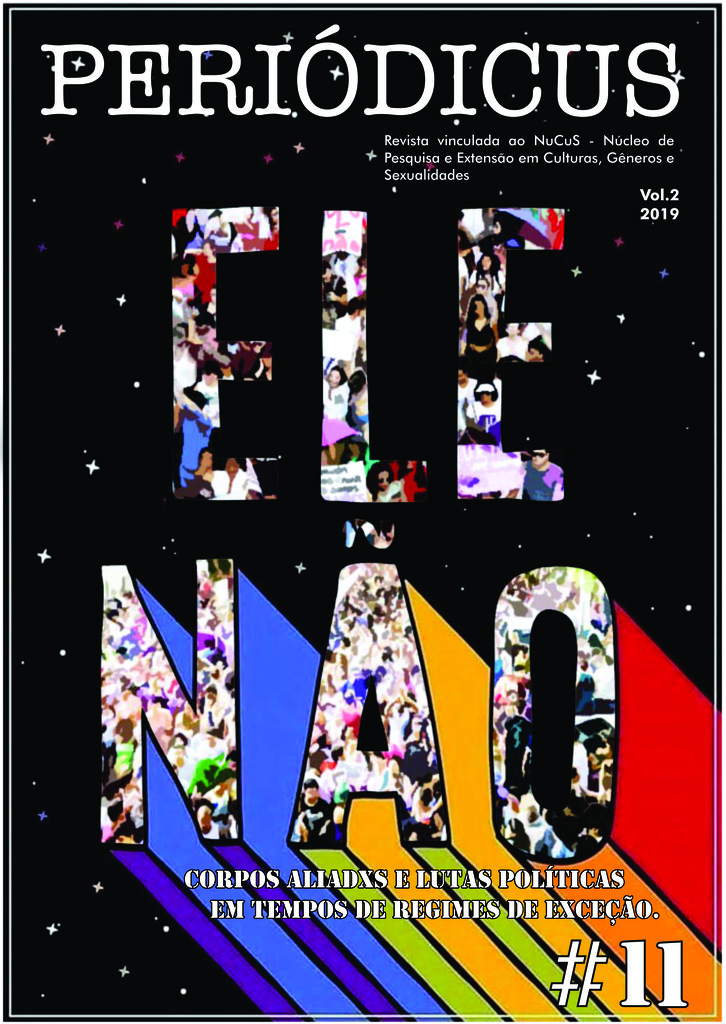As mulheres trans como objeto de amor: Leitura laplancheana
DOI:
https://doi.org/10.9771/peri.v2i11.24627Abstract
Partindo da suposição de que a designação de gênero está intrinsecamente relacionada à constituição psíquica e à alteridade, analisamos a presença do outro na formação da identidade de gênero considerando as formulações de Jean Laplanche e Judith Butler. Procuramos compreender a problemática do relacionamento afetivo entre homens cisgênero e mulheres trans a partir da hipótese de que os impasses nestas relações se dão devido aos modos de tradução da passividade radical dos primeiros meses de vida e a ligação do binômio atividade/passividade ao binômio masculino/feminino. Desta forma, propomos uma desarticulação entre estes binômios por compreendermos que o sexual não é passível de adequação a uma lógica excludente e contraditória, logo, admitimos as dificuldades de se estabelecer um comportamento sexual em que impere a coerência entre o que culturalmente se definiu para cada gênero e sexo, assim como a correlação entre ambos. Apresentamos dois relatos de mulheres trans a fim de demonstrar o desencontro entre elas e os homens cisgêneros. Concluímos alertando para a importância de o/a analista estar atento/a à dinâmica da identidade de gênero durante o tratamento analítico.
Downloads
Downloads
Published
How to Cite
Issue
Section
License
Copyright (c) 2019 Revista Periódicus

This work is licensed under a Creative Commons Attribution-NonCommercial 4.0 International License.
Authors who publish in this journal agree to the following terms:
Authors retain copyright and grant the journal the right of first publication, with the work simultaneously licensed under a Creative Commons Attribution Noncommercial License that allows the work to be shared with acknowledgment of authorship and initial publication in this journal, but prohibits commercial use.
Authors are authorized to enter into separate additional contracts for non-exclusive distribution of the version of the work published in this journal (e.g., publishing in an institutional repository or as a book chapter), with acknowledgment of authorship and initial publication in this journal.
Authors are permitted and encouraged to publish and distribute their work online (e.g., in institutional repositories or on their personal website) at any point before or during the editorial process, as this can generate productive changes and increase the impact and citation of the published work (see The Effect of Open Access).








